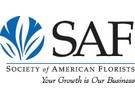SAF joined 92 other organizations as part of the Partnership to Protect Workplace Opportunity (PPWO) coalition, which urged Secretary of Labor Marty Walsh to abandon or at least postpone consideration of changes to the U.S. Department of Labor’s (DOL) overtime regulations under the Fair Labor Standards Act.
DOL last updated the overtime regulations three years ago, adjusting the types of positions that qualify for overtime as well as the minimum salary that employers must pay employees for them to qualify for the white-collar and the highly compensated exemptions to the federal overtime pay requirements. How employees are categorized (salaried versus hourly, or non-exempt versus exempt) and the resulting overtime rules that apply to each category impact employers’ ability to recruit and retain employees and structure benefit plans.
With current workforce shortages, supply chain disruptions, and inflation pushing business operational costs higher, the Society of American Florists argues that now is not the right time to change overtime pay rules.
PPWO notes in a letter to Walsh that employees and employers are best served with a system that promotes maximum flexibility in structuring employee hours, career advancement opportunities for employees, and clarity for employers when classifying employees. Given that the overtime regulations were adjusted three years ago, the timing “strongly suggests there is no need for urgency in issuing more changes,” the letter says.
The letter also highlighted the current labor challenges businesses face: supply chain challenges, labor shortages, and the prospect of both inflation and a recession. “Many businesses are not well-positioned to absorb new labor costs associated with changes to the overtime pay regulations, and such changes would only exacerbate the difficulties businesses are currently facing,” the letter states.
DOL’s Wage and Hour Division is currently hosting a series of listening sessions to hear the public’s feedback on the current overtime regulations. Employers and PPWO have been vocal during those listening sessions, calling on DOL to abandon or at least postpone consideration of changes to overtime rules “until the current economic situation stabilizes and improves to allow the American workforce, employer community, and DOL itself to more fully understand how the pandemic has shifted the paradigm of work in America.”
SAF will continue to monitor the DOL’s process and work with PPWO to advocate for no changes to the current overtime rules.
For more information: SAF
SAF
safnow.org
